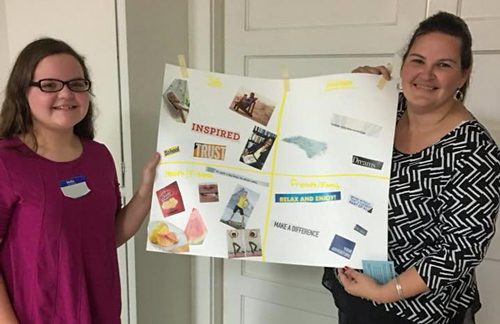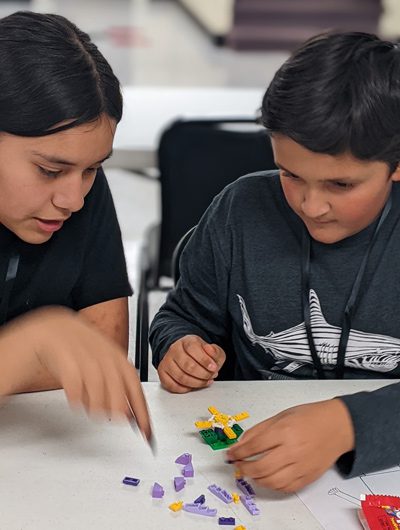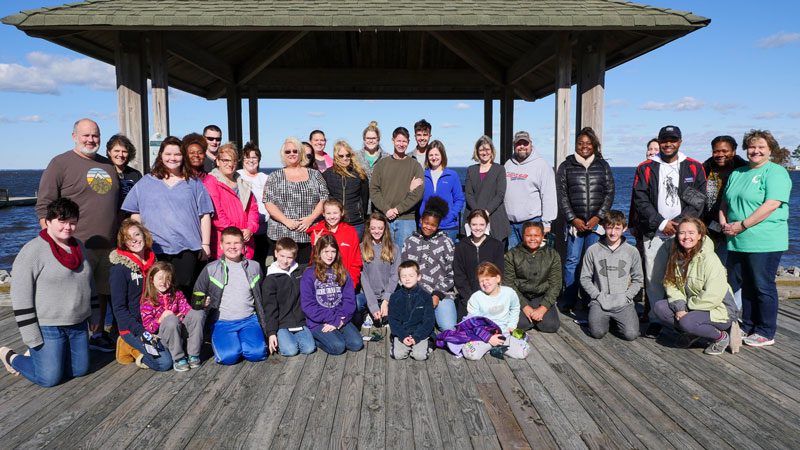Teaching Your Teen to Make Good Decisions

Making thoughtful, values-driven decisions is key to effectively resist peer pressure. But because the parts of the brain responsible for decision-making, impulse control, and sensation-seeking aren’t fully developed during adolescence, teens and preteens are more likely to engage in impulsive and risky behaviors with an immediate reward than to consider the potentially negative consequences of their actions.
That’s where you—the parent, caregiver, or supportive adult—come in! Teaching your teen or preteen how to assess risk and make good decisions now will help them confidently navigate precarious situations later.
Below are four tips for encouraging your teen to make thoughtful decisions:
1. Establish trust and open communication. A supportive parent-and-child relationship built on open, honest communication and healthy boundaries is paramount. Indeed, research consistently shows that the active involvement of supportive adults—especially parents and caregivers—leads to positive social, emotional, and academic youth outcomes and serves as a protective factor against risky behavior. Nurturing honesty and encouraging openness includes providing truthful information on issues like sex, safe internet use, and alcohol and drug use. It also means encouraging your child to reach out should they ever find themselves in a predicament – such as asking you to pick them up at a party where alcohol or drugs may have been consumed.
2. Stop and think. The next time your teen or preteen is confronted with a potentially risky decision, encourage them to pause and think. Stepping aside to use the restroom, asking a trusted friend for advice, or making a phone call—to you, if possible—will give them the time to think through their options and determine the best course of action.
3. Create a script. For teens and preteens, knowing how to respond when confronted with a potentially risky decision can be tricky, especially given their propensity for impulsivity and immediate gratification. Help them practice by engaging in a variety of hypothetical scenarios and taking the time to come up with thoughtful responses. Youth who have a script in mind for how to respond to risky propositions will feel more confident resisting peer pressure and making good decisions.
4. Develop a decision-making compass. A decision-making compass is precisely what it sounds like: a framework for making sound, thoughtful decisions. Walking your child through each of the steps will help them make decisions they will feel good about for years to come.
- Identify the problem. What decision does your child have to make? The situation can be hypothetical or a challenge your teen or preteen is currently facing.
- List the options. Brainstorm possible options and corresponding actions. Allow your child to take the lead; offer suggestions upon request or if your teen is having trouble getting started.
- Weigh the consequences. Help your child think through the implications of each decision by making a list of the pros and cons. Be sure to provide support and encouragement along the way.
- Consider personal values. Ask your teen or preteen to take stock of their values and determine which decision best aligns with those values.
- Decide, act, and evaluate. After considering all the options, your child must make a decision and put it into action. Encourage them to reflect on their decision and determine what, if anything, they could have done differently.
While learning to make good decisions is a valuable life skill, it’s also important to remember that bad decisions are inevitable. When your child makes a poor decision—and they will—turn it into a teachable moment by talking to them about where their decision went wrong and how they can make better choices next time they are faced with a similar situation.


